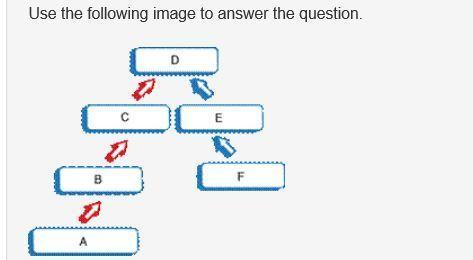
Social Studies, 16.04.2021 01:30 LordBooming
Excerpt taken from The Historic Rise of Old Hickory by Suzanne B. Williams
Four major candidates ran in the 1824 election, all under the "Democratic-Republican" name. One of the candidates, Andrew Jackson, was already famous. In the 1780s, he earned the right to practice law and served in various offices of the state government, including senator. He earned the nickname "Old Hickory" for his toughness as a general during the War of 1812 and First Seminole War. Jackson supported slavery and "Indian removal." This earned him support from voters in southern and frontier states. The other three candidates were John Quincy Adams of Massachusetts, Henry Clay of Kentucky, and William Crawford of Georgia.
U. S. presidents are elected through the Electoral College. The Founding Fathers worried that Americans were too spread out to learn enough about the candidates. Under the Electoral College, Americans cast their ballot for the popular vote, which chooses the electors for each state. The number of electoral votes each state equals the number of representatives and senators combined. The candidates must win an absolute majority of electoral votes to win the election.
In 1824, Andrew Jackson won the popular vote, but he did not win it in each state. Jackson and Adams both won many electoral votes. Jackson won the most with 99. However, a candidate needs an absolute majority of electoral votes to win. In 1824, Jackson needed 131 to win. When there is not majority winner, the election goes to the House of Representatives. This has only happened twice in U. S. history.
Even though he won the popular vote and many electoral votes, Andrew Jackson lost the presidency in 1824. John Quincy Adams was the Secretary of State at this time. Henry Clay was the Speaker of the House of Representatives. Henry Clay, receiving the least, was left out. However, as a leader in the House of Representatives, he had influence over the other members. Clay openly hated Jackson and there were rumors that Clay made a deal with Adams in exchange for his support. The House election declared John Quincy Adams president. Soon, he chose Henry Clay to fill the seat he left vacant, Secretary of State. Jackson was shocked and enraged. Although there was no inquiry of possible wrongdoing, Jackson accused Adams and Clay of making a "corrupt bargain."
John Quincy Adams was a disappointment as president. Many of his goals created divisions like federal funds for internal improvement. Some states thought that taking federal funds would force them to follow certain rules. They felt this reduced their rights as independent states. Jackson took advantage of issues like this one to gather more support. More Jackson supporters found their way to seats in Congress. He was as a man of the people and said Adams could never understand the common man's concerns.
John Quincy Adams ran against Andrew Jackson in the 1828 election. Personal attacks grew even more vicious, but Andrew Jackson appealed to many. He believed government was for the common man. He believed in strict reading of the law and limited internal improvements. He also believed in states' rights.
Andrew Jackson easily won the 1828 election, winning both the popular vote and a majority of electoral votes. Historians note the sectional nature of the voting. Support for Jackson was concentrated in South while Adams' support was mostly in the North. Jackson was so popular because he brought changes to the government. He also wanted to make sure the government was responsible for its actions. Jackson pushed settlement into the frontier. He supported the Indian Removal act. He also defended the spread of slavery. Though his support was heavier in the South, he was determined to keep a unified nation. The rise and presidency of Old Hickory is memorable to Americans today.
Which statement makes a true comparison of the 1824 and 1828 elections?

Answers: 1


Another question on Social Studies

Social Studies, 22.06.2019 03:00
Which of the following might cause the inflation rate to spike up sharply? the purchasing power of the average consumer decreases due to a sluggish economy. plentiful rainfall and moderate temperatures result in good harvests of wheat and soybeans. the items in the cpi market basket change to account for changing consumer buying habits. prices on world oil markets rise steeply due to war in the middle east.
Answers: 1

Social Studies, 22.06.2019 10:40
Awaiver of the requirement for documentation of informed consent may be granted when: the investigator has no convenient place to store signed consent forms separate from the research datathe only record linking the subject and the research is the consent document and the principal risk is a breach of confidentiality.potential subjects might find some of the research questions embarrassing, personal, or intrusivethe subjects are literate in their own language; however, they do not read, write, or speak english
Answers: 3

Social Studies, 22.06.2019 13:40
Chris, a master at office gossip and innuendo, says, "we know we have a corporate spy someplace in the organization, probably on the management team itself. there is no evidence that it is audrey. in fact, she's too clean, if you know what i mean. somebody should fire audrey; she's got to be the spy." by making this argument chris is actually engaging in (a) an appeal to emotion fallacy (b) a straw man fallacy (c) an appeal to ignorance fallacy (d) circular reasoning (e) an appeal to the mob fallacy
Answers: 3

You know the right answer?
Excerpt taken from The Historic Rise of Old Hickory by Suzanne B. Williams
Four major candidates ra...
Questions

Social Studies, 18.07.2019 05:00

Mathematics, 18.07.2019 05:00

Biology, 18.07.2019 05:00

Social Studies, 18.07.2019 05:00

History, 18.07.2019 05:00

Biology, 18.07.2019 05:00

Biology, 18.07.2019 05:00

History, 18.07.2019 05:00

Biology, 18.07.2019 05:00

Mathematics, 18.07.2019 05:00


Arts, 18.07.2019 05:00


Mathematics, 18.07.2019 05:00

Chemistry, 18.07.2019 05:00

Mathematics, 18.07.2019 05:00




History, 18.07.2019 05:00




